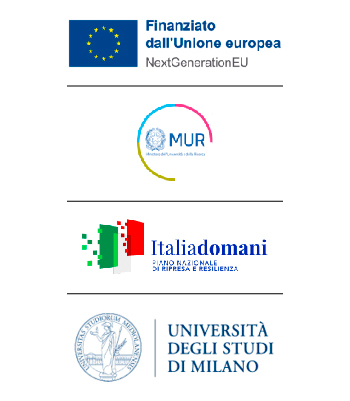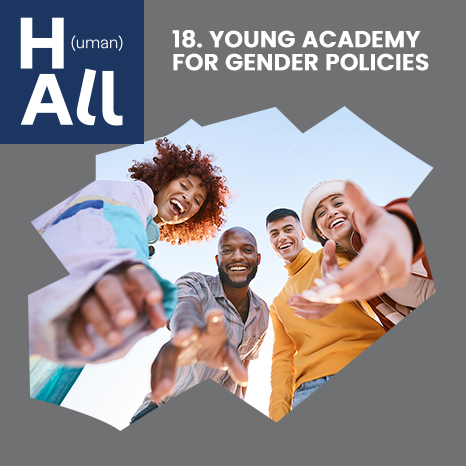All Human Hall projects
SERIES OF MEETING ABOUT THE INTERSECTIONAL DISCRIMINATIONS
The Università degli Studi di Milano, with the Human Hall team and the Comune di Milano, features a cycle of meetings about intersectional discriminations. The meetings focus on the interaction between different discrimination factors such as gender, religion, nationalities, ethnicities, languages; and the effects that they have on vulnerable people.
INIZIATIVES
Parla Alessia Cappello, assessora allo Sviluppo Economico e Politiche del Lavoro del Comune di Milano
OPPORTUNITIES ARE BORN OUT OF RIGHTS
Interview with Alessia Cappello, Councilor for Economic Development and Labor Policies of the City of Milan, Italy.
Why did the City of Milan decide to support the Cycle of Meetings on Discrimination?
The topic of rights is a priority for the administration. It always has been. Because a city must be sustainable not only environmentally but also socially. At the beginning of 2023, for example, “Mentorship Milano,” the first women’s empowerment project launched within the “Jobs Pact,” kicked off. But discrimination is not only about gender.
The seminars, in fact, analyze discrimination in an “intersectional” manner. So why is this approach crucial?
It is decisive because discrimination is interrelated. I recently read a book on ageism, i.e., age discrimination. It is a form of discrimination probably less weighty and discussed than others, but it is arguably the most prevalent. Because there is always a time when you are called too young or too old . It happened to me too, as a young person but also as a woman. Whether you are Italian or foreign-born, male or female, the discrimination adds up.
The decision was made to give the meetings a “home,” in the truest sense of the word: they are being held in the Casa delle Donne…
Technology led to positive effects. It promotes opportunities for people to be there and participate, including from a distance. But there is one aspect that only physical presence can give: the retrieval of human contact, an exchange also made of hugs and smiles. Getting together in a cozy and familiar environment, such as the Women’s House, help to build a more direct, strong and engaging relationship.
What contribution is expected from Human Hall?
To answer, I start from a recent incident. I saw a tweet from a gentleman about his wife being stopped while out walking and mocked for her dark skin. I thought for a long time about what might be the right words to apologize, on behalf of the city. Incidents like this happen even in Milan, which has made rights central to its actions. We cannot afford it anymore. Therefore, it is necessary, always, to ask ourselves whether we live in an accessible city. Whether Milan is really open to migrants, to women, to people with disabilities. So from Human Hall, I expect two things above all: monitoring of what is happening, because it is necessary to keep the focus high, as well as a scientific approach to finding concrete solutions. What we want to do is create an inclusive, socially sustainable, accessible city.
Is Milan truly an inclusive city?
Indeed, it always has been. It has been able to keep going while remaining mindful of the last. But to keep these characteristics, engrained in its DNA, a new balance has to be found today, particularly with regard to the cost of living. It’s a spiral: just being such an appealing city drives up prices, housing costs and rents. Thus, risking making Milan exclusionary. Projects like Human Hall are so important, because they put human rights at the center, to keep being “the city of opportunity,”. And there cannot be opportunity without rights.
Rights are an ethical issue. But more than that.
In what ways do they tie in with the competencies of your department, Economic Development and Labor Policies?
There can be no development without affordability. Discrimination, in addition to being a rights issue, is an economic issue. Gender equality, for instance, is worth seven GDP points. Seven GDP points is an enormous boost to the development of the country, achieved not through higher production but, simply, by giving women equal access to the work environment. Among the many possibilities, this is an obvious example of how there can be no economic development without inclusion.






















